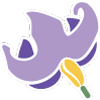The genus Solanum is of worldwide economic importance, including major crop species such as the potato (Solanum tuberosum), the tomato (Solanum lycopersicum) and eggplant (Solanum melongena).
 |
 |
 |
| Solanum tuberosum commonly known as the potato | Solanum lycopersicum commonly known as the tomato | Solanum melongena commonly known as the eggplant |
There are also a number of species cultivated on a smaller scale for their edible fruits, tubers or leaves and as sources of medicinally valuable alkaloids. Some examples of lesser known fruit crops include the tree tomato (Solanum betaceum), naranjilla (Solanum quitoense) and pepino (Solanum muricatum) from the 'New World' and the scarlet and gboma eggplants (Solanum aethiopicum and Solanum macrocarpon, respectively) from the 'Old World'.
 |
 |
 |
| Solanum betaceum commonly known as the tree tomato | Solanum muricatum commonly known as pepino | Solanum macrocarpon commonly known as gboma eggplant |
Some of these economic taxa are domesticates that have been subjected to human selection, affording the possibility of examining questions about the origin and wild relatives of cultivated species and the evolution of traits in concert with human selection. Because of the established importance of the potato, tomato, and eggplant, new traits or processes discovered in wild Solanum species may be of direct application in agricultural improvement of existing crops, and dozens, if not hundreds, of these wild species have been used in crop breeding programs around the world.
